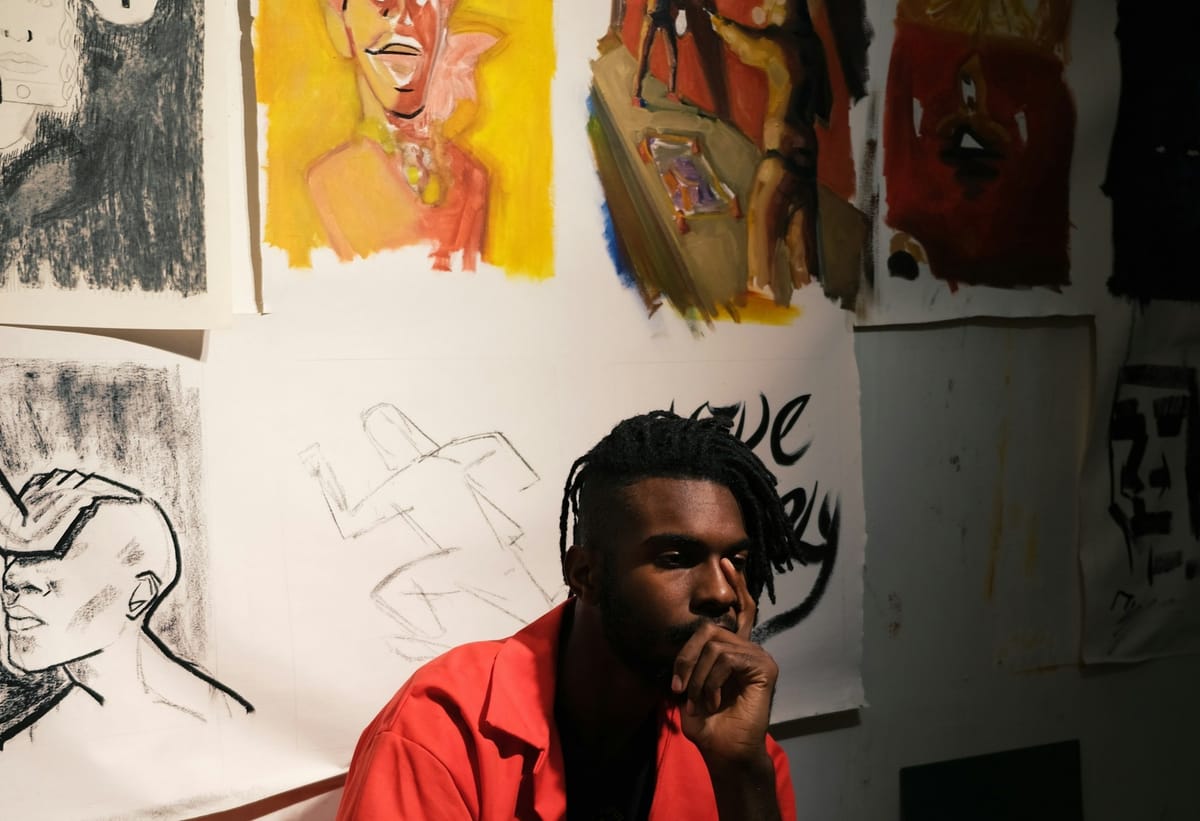Dear Atheists, You're Still Religious

Dear atheists.
I get it. I really do. You figured out Santa Claus was not real around age eight, and you've been applying that same ruthless logic to everything since.
God? Mythology.
Soul? Brain chemistry.
Meaning? Human construct.
Purpose? Evolutionary accident.
You've stripped away the comforting lies and stared directly into the void like some kind of PTSD inflicted Navy SEAL.
You're so proud of your rationality. And you should be—for about five minutes. Because then you need to reckon with this: You're still religious. You just worship at a different altar now.
The popular narrative goes like this: religious people are deluded, spiritual seekers are naive, and atheists are the only ones thinking clearly. That's why you defend your stance with logic, evidence, and increasingly hysterical arguments on social media.
But your brain, it doesn't give two bits about your atheism. Right now, this very second, it's manufacturing meaning faster than the Catholic Church manufactures guilt, and you don't even notice.
You think you've transcended the need for faith? Rubbish.
You have faith that your morning routine matters. You have faith that your relationships are more than biochemical accidents. You have faith that your Netflix preferences reveal something meaningful about human nature. You have faith that being "rational" is somehow inherently superior to being "irrational".
We can't prove consciousness isn't an illusion. We can't prove free will exists. We can't prove love is more than oxytocin and dopamine hitting the right receptors at the right time. We can't prove your life has any significance beyond the atoms that compose your temporary body.
But you live as if all these things matter anyway.
Carl Jung called this our arbitrary decision—the stories we tell ourselves because pure uncertainty would drive us insane. You're going to believe in something. Your brain literally will not let you function in a state of pure, unadulterated uncertainty.
The question is: why did you choose such a small, depressing something?
Some people choose elevation. The Pueblo Indians believe they're children of Father Sun. Unprovable? Sure. But it gives them identity, purpose, a cosmic reason to exist that transcends their individual mortality.
When a Pueblo elder faces hardship, they're not just some random carbon unit getting screwed by entropy—they're a child of the Sun being tested by cosmic forces.
In Hinduism, you're not just meat stumbling toward death. You're Brahman—universal consciousness experiencing itself subjectively. When you help someone, you're literally helping the divine in yourself. When you create beauty, you're participating in the endless dance of Maya itself. Can't prove it. Don't need to.
Then there is you, the one who chooses diminishment like it's some kind of intellectual achievement.
"I'm just an underdog with no inherent meaning."
"Life is a chemical accident."
"We're all going to die anyway, so nothing matters."
"Consciousness is an illusion."
"Free will doesn't exist."
Also unprovable. Also a choice. Also completely stupid if you want to actually function as a human being.
Jung watched people pick this story and get absolutely crushed by ordinary problems. Because when you believe in nothing sacred, everything becomes unbearable.
I used to be exactly where you are. I thought I was the enlightened one, surrounded by people who needed imaginary friends to cope with reality. I had it all figured out—we're sophisticated animals, consciousness is a fluke, morality is social convention, art is decoration on the abyss, love is temporary insanity with evolutionary benefits.
I was so rational. So intellectually honest. So completely absolutely miserable. Because even the most hardcore materialist atheist lives by unprovable assumptions every single day.
You assume your thoughts correspond to reality. You assume other people have inner experiences similar to yours. You assume the future will resemble the past. You assume your values matter enough to argue about them online.
None of this is provable. All of it requires faith.
And the irony is that you as an atheist have chosen the most depressing possible set of unprovable beliefs and convinced yourself this makes you smarter than everyone else.
Which operating system are you actually running? When hardship comes, do you break or bend? When someone needs help, do you see burden or opportunity? When you look at your work, do you see drudgery or devotion? Faced by the thought of death, do you feel terror or curiosity?
Person A believes their work matters, that love transcends chemistry, that there's something sacred worth protecting.
Person B believes life is "a tale told by an idiot"—random, purposeless, going nowhere fast.
Same planet. Same problems. Same mortality. Different experience entirely.
Person A can handle incredible hardship because it serves a purpose larger than their individual comfort. Person B gets overwhelmed by a bad day at work because they've already decided nothing they do ultimately matters.
If you're honest—really, really honest—you'll realize that you don't actually live like a materialist. You live like someone who believes in meaning, purpose, morality, and significance. You just refuse to admit it because that would mean acknowledging you're not as rational as you pretend to be.
I used to be you. I used to think that believing in meaning was for weak people who couldn't handle reality. I spent years being intellectually superior to everyone around me. I could deconstruct any belief system, explain away any spiritual experience, reduce any human behavior to its evolutionary components. I was a walking encyclopedia of human delusion.
And, of course, I was absolutely miserable.
Then I realized something that should have been obvious: even if meaning is "just" a story, it's the most powerful technology humans have ever developed. It's what separates thriving from surviving. What makes the difference between being crushed by ordinary problems and finding purpose in extraordinary challenges.
The universe somehow produced beings capable of love, beauty, moral reasoning, and meaning-making and I was arguing these capacities were illusions. I called it skepticism but in reality it was nihilistic faith disguised as intellectual courage.
Jung's insight cuts through all the philosophical clutter : You're going to believe something anyway. Your brain won't let you live in pure uncertainty. It's not designed for that.
So why choose the story that diminishes your capacity for purpose? Why live as if your kindness doesn't ripple through eternity? Why work as if your contribution won't echo beyond your death? Why love as if it's just neuro-chemical fireworks with no deeper significance?
The Hindus believe you are Brahman experiencing itself subjectively. The Yazidi believe you are a spark of the divine light. The Mongolian believes you are part of the eternal cycle connecting Tengri (the Blue Sky), the Earth-Mother, and all living beings in sacred harmony. You believe you're a meat robot running on autopilot toward inevitable decay.
Four stories. All unprovable. All lived every day by millions of people. But which one makes you capable of withstanding what's coming next?
Salt works. Even if you can't prove why it works. Even if you think the explanations for why it works are superstition. Your body needs it, uses it, thrives with it.
Meaning works the same way.
You can analyze it, deconstruct it, explain it away as evolutionary programming or social conditioning or neuro-chemical accidents. But you still need it to function. You still use it every day. You still make every important decision based on what you think matters.
The question isn't whether meaning is "real" in some objective sense. The question is: which unprovable story serves the person you're trying to become?
Because whether you admit it or not, you've already chosen. And if you're reading this with a growing sense of recognition rather than dismissal, you're starting to realize your choice might be making you smaller than you need to be.
The void is still there. It always will be. But you get to decide whether you stare into it with despair or dance with it like a partner in the grand mystery of existence.
Choose bigger,
Someone who used to worship at the altar of rationality (and lived to tell about it).
P.S. - Your atheism is just another form of faith. The sooner you admit that, the sooner you can choose which faith actually serves your flourishing instead of just your intellectual pride.





